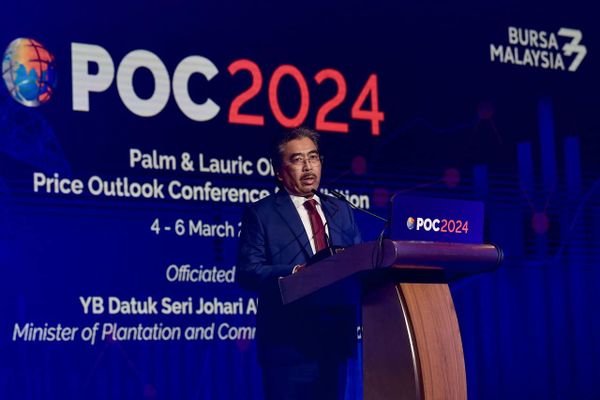KUALA LUMPUR, Sept 27 — Malaysia is working on initiatives to ensure oil palm smallholders can comply with the European Union’s law banning imports of commodities linked to deforestation, Plantation and Commodities Minister Datuk Seri Johari Abdul Ghani said today.
The EU Deforestation Regulation (EUDR) is due to be implemented on December 30 this year, requiring firms selling soy, beef, coffee, palm oil and other products in the 27-nation bloc to prove their supply chains do not contribute to deforestation.
Equally, EU companies will be banned from exporting products cultivated on deforested land.
Malaysia and Indonesia, who together account for about 85 per cent of global palm oil exports, have previously accused the EU of discriminatory policies targeting palm oil.
Johari said today the country’s palm oil sector adopts stringent sustainability standards through its Malaysian Sustainable Palm Oil scheme.
He said an estimated 450,000 smallholders contributed 27 per cent of Malaysia’s total palm oil production and the government was actively working on capacity-building initiatives to support their transition to EUDR compliance.
“This is important to ensure the livelihoods of these smallholders are not affected by the implementation of the regulation,” Johari said in a statement, without providing details on the initiatives.
Malaysia also focuses on the aspects of traceability, deforestation-free, legitimate land title, and good labour practices in line with International Labour Organisation standards to ensure sustainability of its palm oil products, Johari added.
Earlier this month, state agency the Malaysian Palm Oil Council urged the EU to delay the implementation of the law to protect small farmers and ensure fair trade.
The EU has resisted calls to delay its policy and said the rules are to ensure the bloc does not contribute to forest degradation worldwide.
— Reuters


